One afternoon, my friend and I were sitting at our favorite outdoor restaurant, enjoying the breeze and sipping on our drinks. As usual, the conversation turned to our cats – because, honestly, what else is there to talk about?
I have two Siamese cats, Batman and Robyn, and my friend has a British Shorthair named Berry. Naturally, we started chatting about their personalities and how different they are.
Berry likes to lounge around, acting like a little king. He’s relaxed, independent, and totally laid-back. Meanwhile, Batman and Robyn are constantly keeping me on my toes!
We laughed at the antics our cats get up to, swapped care tips, and bonded over our shared love of these amazing felines. By the end of the chat, I realized just how different Siamese cats and British Shorthairs really are – and I couldn’t wait to share what I learned with you!
Here’s a side-by-side comparison of the Siamese and British Shorthair cats. Let’s dive in!
Siamese Cats and British Shorthairs: How Do They Compare?
Let’s compare side-by-side to help you determine which cat is the perfect fit for you!
| Feature | Siamese Cat | British Shorthair Cat |
|---|---|---|
| Physical Appearance | Sleek and slender body | Stocky and muscular body |
| Eyes | Almond-shaped blue eyes | Round, large eyes |
| Eye Color | Blue | Blue, copper, gold, green |
| Ears | Large ears | Medium-sized ears with rounded tips |
| Coat | Short coat | Dense, plush coat |
| Coat Patterns | “Points” coat pattern | Solid colors, tabby, tortoiseshell |
| Size and Weight | Small, typically 8-12 pounds | Hefty, 10-18 pounds or more |
| History and Origins | Originated in Thailand. Introduced to the Western world in the late 19th century. | Originated in Britain in the 19th century through selective breeding of domestic cats. |
| Temperament | Affectionate, vocal, clingy, outgoing | Reserved, calm, independent, laid-back |
| Adaptability | It takes time to adapt to different living conditions | Can quickly adapt to other living conditions |
| Temperament with Children | Affectionate, good with children | Gentle, suitable for households with children |
| Energy Level | High | Moderate |
| Play Style | Active and acrobatic | Relaxed and soft |
| Climbing | Enjoys climbing | Less inclined to climb |
| Water Tolerance | High tolerance, enjoys water so much | Not as fond of water |
| Vocalization | Chatty, has a wide range of vocalization | Quieter, less vocal |
| Feeding Habits | Can be finicky | Less fussy about food |
| Sleep Patterns | Nocturnal tendency, more active at night | More regular sleep patterns |
| Socialization | – Strong hunting instincts. – May stalk, pounce, and often engage in hunting behaviors | – Less pronounced hunting instincts. – Not avid hunters |
| Training & Obedience | – Intelligent and trainable, responsive to training. – May learn tricks or commands quickly. | – More independent and stubborn. – It may involve more patience and persistence in training efforts. |
| Agility | – Athletic – Excels in activities demanding speed, coordination, and balance. | – Laid-back – Less inclined toward high-energy activities |
| Litter Box Habits | – Fastidious about cleanliness. – Prefers a clean and well-maintained litter box. – May show signs of discomfort if the litter boxes are not clean. | – Has a relaxed approach to litter box habits. – May tolerate a slightly less clean litter box. |
| Care Requirements | – Regular grooming to prevent tangles and matting – Regular dental care – Has a higher need for physical and mental stimulation | – Regular brushing to remove loose fur and avoid matting – Monitor diet and provide regular exercise to prevent obesity. |
| Affection towards Strangers | – Outgoing and social – Friendly towards strangers | – More reserved and cautious around strangers – It takes time to warm up to new people |
| Socialization with Other Pets | – Sociable – May get along well with other pets in the household, like cats and dogs | – More reserved and may take time to warm up to other pets – Prefer solitary activities – Needs slow and gradual introductions |
| Adaptability to Climate | – Tolerate warmer climates well – May have difficulty coping with colder temperatures weather | – Adaptable to colder climates – Dense and plush coat provides better insulation against colder weather |
| Health & Genetic Considerations | – Generally healthy – May be prone to eye conditions and dental issues | – Generally healthy – May be susceptible to hypertrophic cardiomyopathy |
| Average Lifespan | 12-15 years, with proper care | 12-16 years, with some living longer |
| Affection & Bonding | Affectionate, attached to their owners, and form strong bonds | Affectionate, more independent in their affection |
| Popularity & Recognition | – Well-known breed – Popular in media, movies, and TV shows | – Gaining popularity – May not be as popular in Asian regions |
| Breeding & Availability | – Well-established and popular breed – More readily available | – Less commonly found – Availability may vary in different regions |
| Initial Cost | $600 – $1,500+ (depends on location, pedigree, and breeder reputation) | $1,200 – $2,500+ (varies on location, pedigree, and breeder reputation) |
| Maintenance Cost | Moderate to high | Moderate to high |
Siamese and British Shorthairs are both adored due to their unique characteristics. They’ve got different looks, personalities, and care needs.
Let’s delve into a more detailed comparison of Siamese and British Shorthair cats!
Siamese Cats: The Sleek and Vocal Charmers
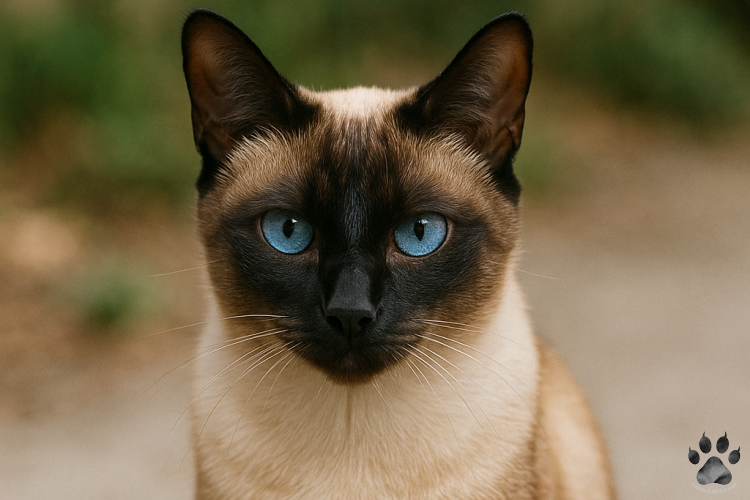
As a Siamese cat owner, I can confidently say that these little guys are charismatic! They’re sleek, slender, and full of personality. My Siamese cats, Batman and Robyn, are constantly seeking attention, and their vocalizations can range from sweet chirps to full-on conversations!
They’re known for being affectionate, clingy, and social, which makes them awesome companions – unless you’re an introvert, in which case, they might drive you a little nuts.
They do tend to bond very strongly with their humans, often following us around the house, seeking our laps for a cozy cuddle. And let me tell you, their striking blue eyes and almond-shaped face are hard to resist!
British Shorthairs: Laid-Back and Low Maintenance
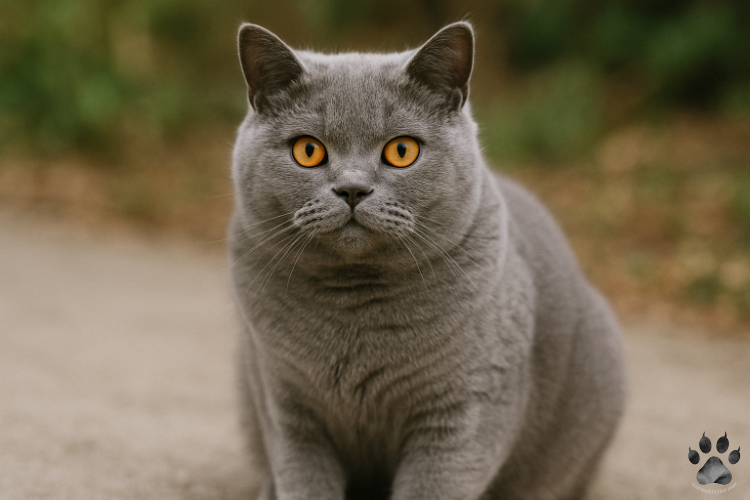
On the flip side, British Shorthairs are like the laid-back cousins of the cat world. I’ve always admired their calm demeanor. They’re not as needy as Siamese cats and are much more content to hang out on their own. Berry, Annie’s British Shorthair, has a solid, muscular build and enjoys his space. He’s independent but still affectionate when it suits him.
British Shorthairs are often quieter than Siamese cats, making them great for those who want a peaceful home. They’re also less vocal and don’t demand constant attention, so they’re perfect for people who want a more chill cat that still loves to snuggle.
Choosing the Right Cat for You: Siamese or British Shorthair?
So, which breed should you go for? It all depends on your lifestyle and what kind of personality you’re looking for in a cat! If you want a chatty, energetic, and affectionate companion who’s always by your side, Siamese cats are your perfect match.
But if you prefer a laid-back and low-maintenance kitty who can entertain themselves and be just as loving when they want to be, a British Shorthair might be the way to go.
Whatever you choose, both breeds make amazing pets with their own quirks and lovable personalities. After all, I adore both Batman and Robyn for being my quirky, affectionate companions!
More Siamese Cat Fun and Accessories!
Want to show off your love for your Siamese cat or cat lover status?
Check out these fun and quirky Siamese cat stickers that are purrfect for decorating your space or gifts for fellow cat lovers:
- Yoga Cat Motivational Kiss Cut Stickers
- Less People, More Cat Stickers
- Meow is the Time Cat Stickers
- Keep Calm, Relax, Yoga Let It Go Cat Stickers
- Relax Yoga Let It Go Cat Stickers
- Love Relax Yoga Let It Go Cat Stickers
These Siamese cat stickers will add some purrfection to your space, whether you’re decorating your laptop, water bottle, or notebook. Trust me, as a Siamese cat lover, I can’t get enough of these cute designs!

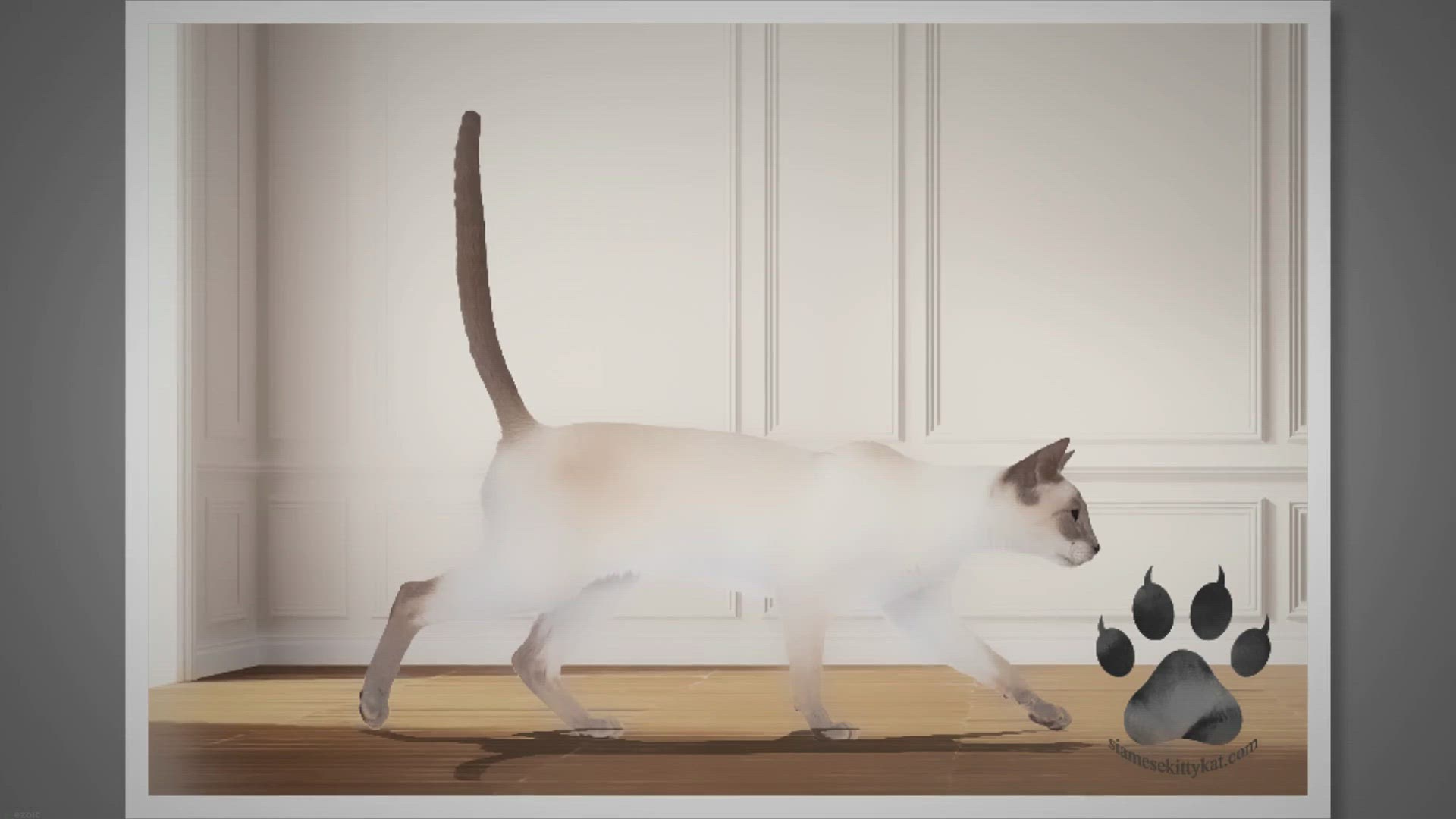

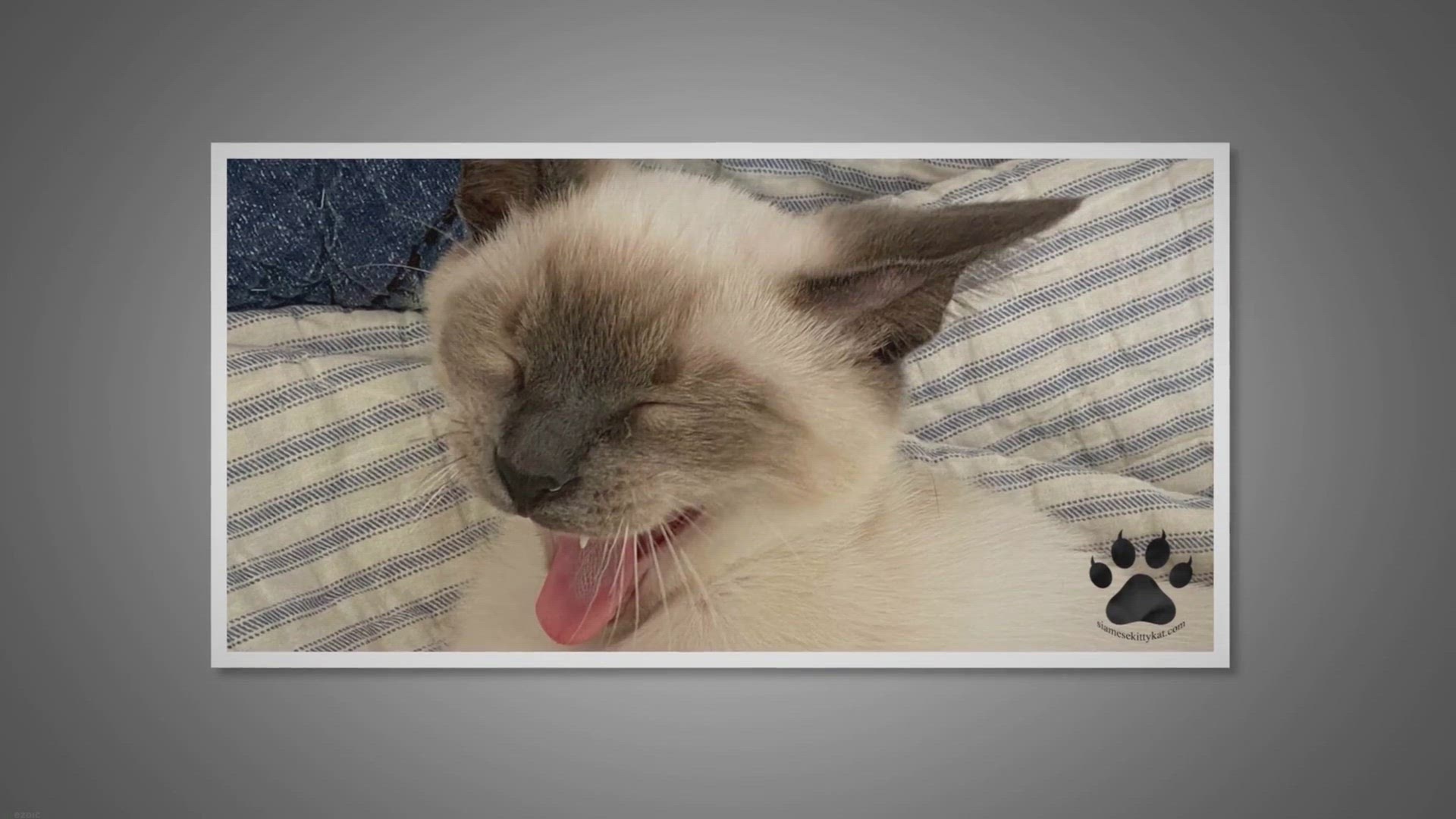
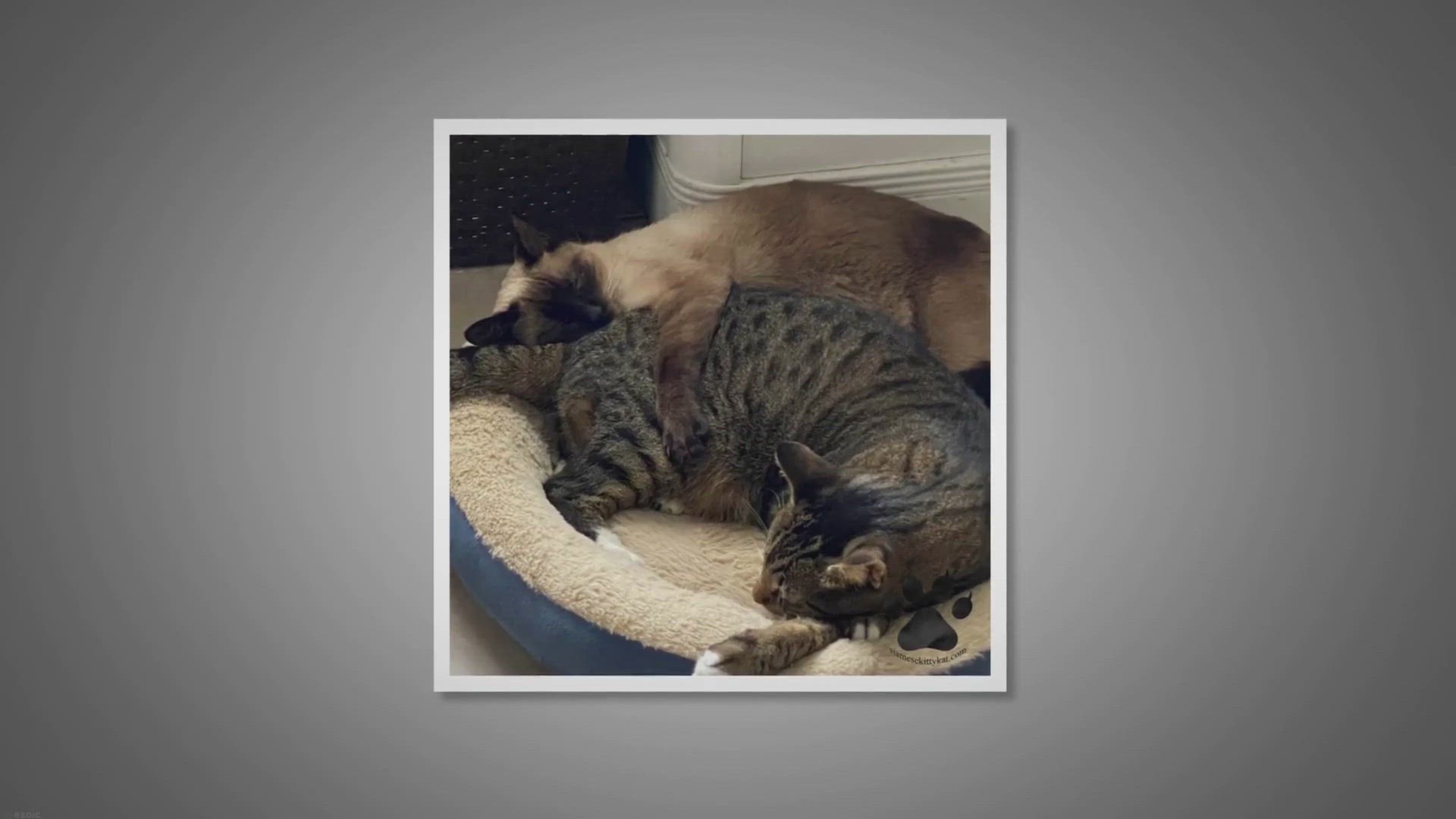
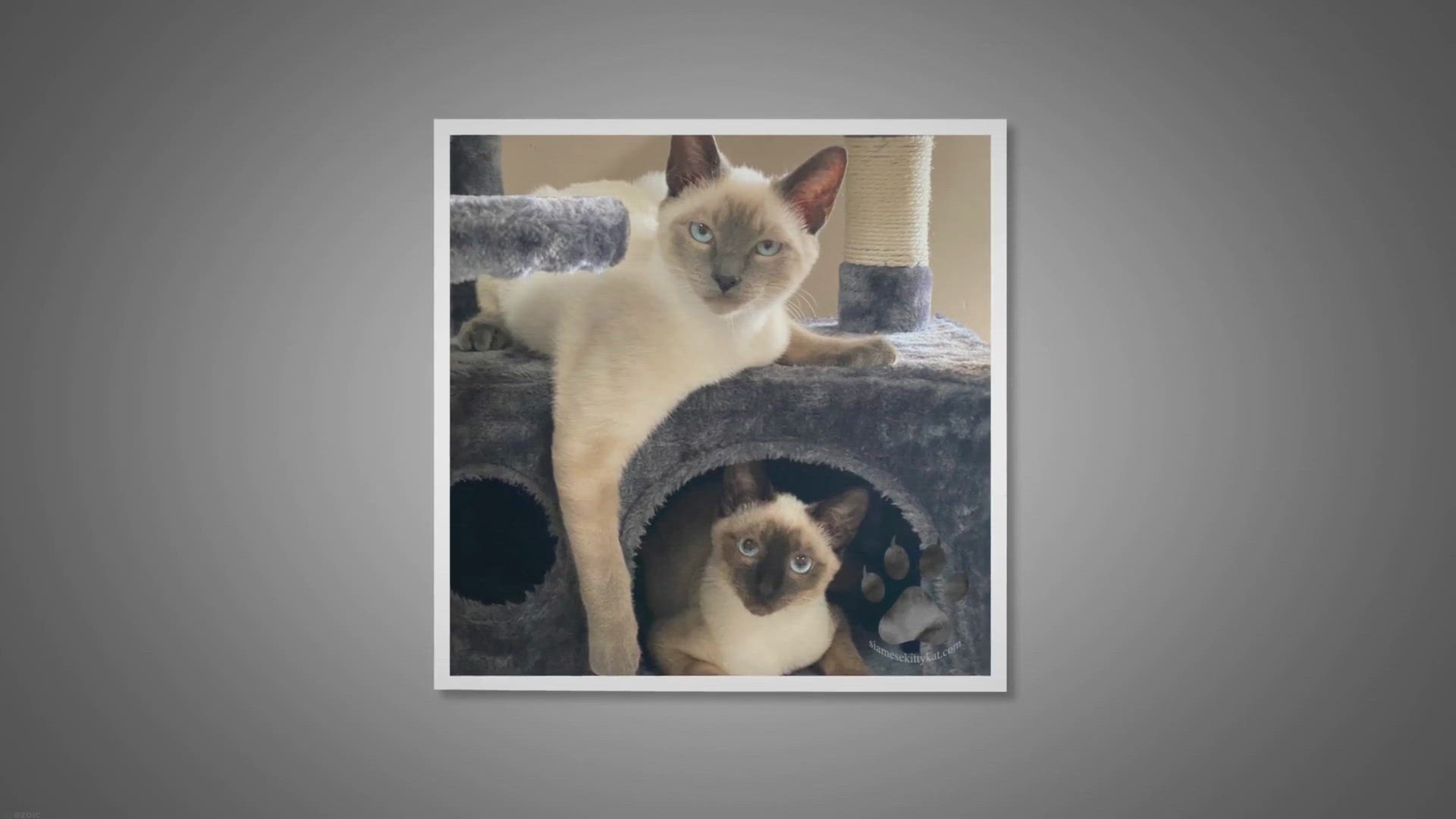
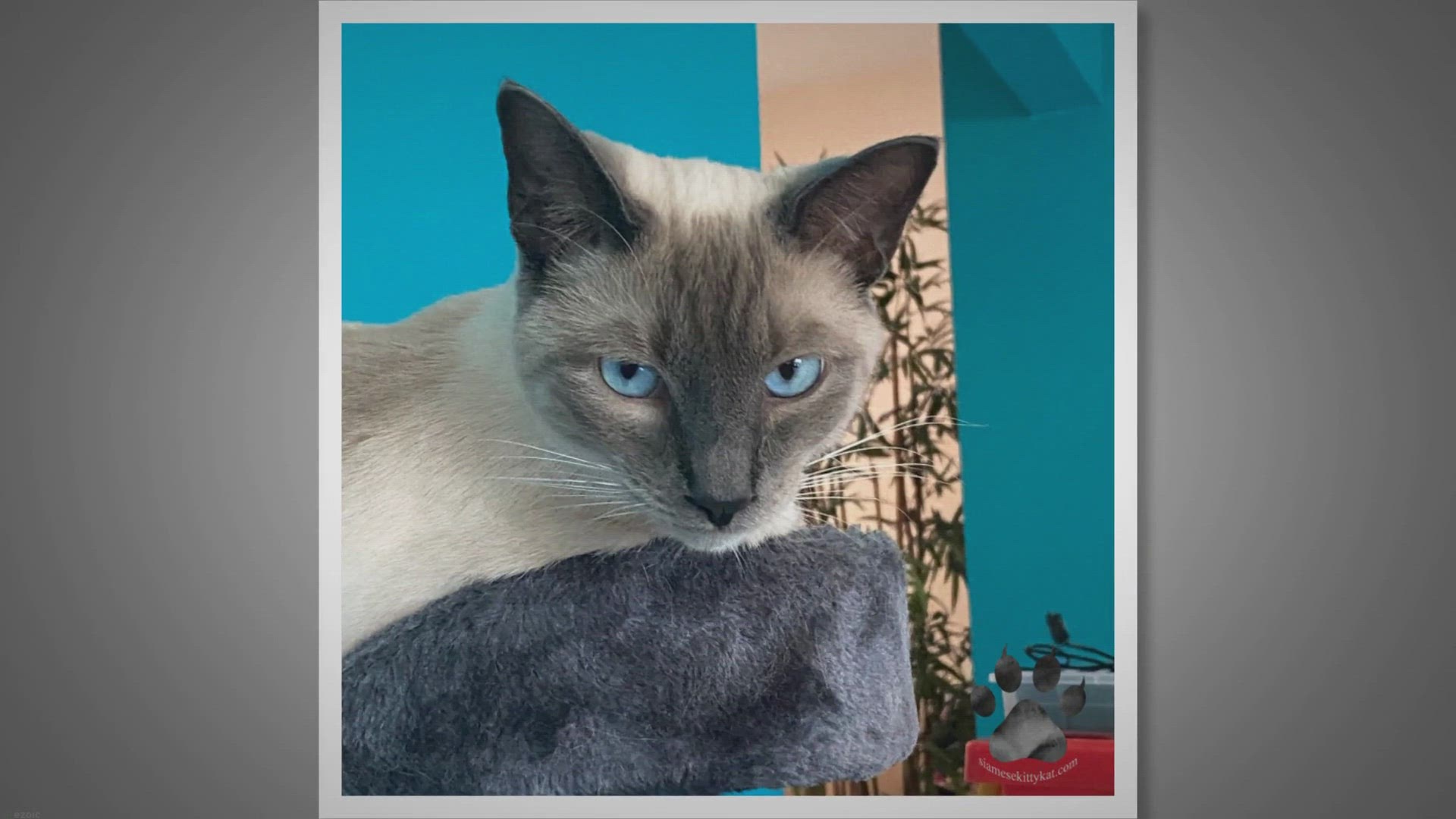
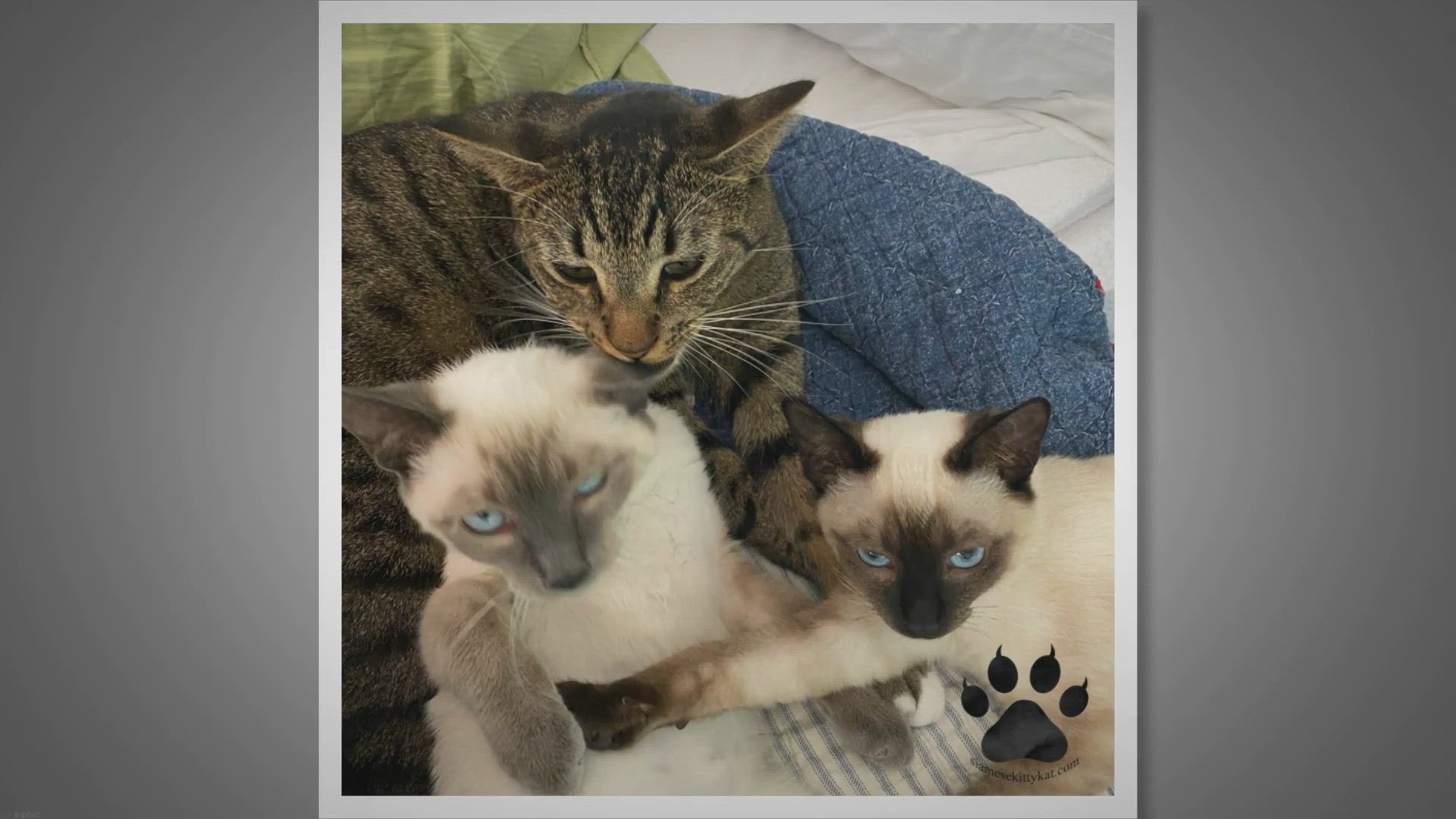
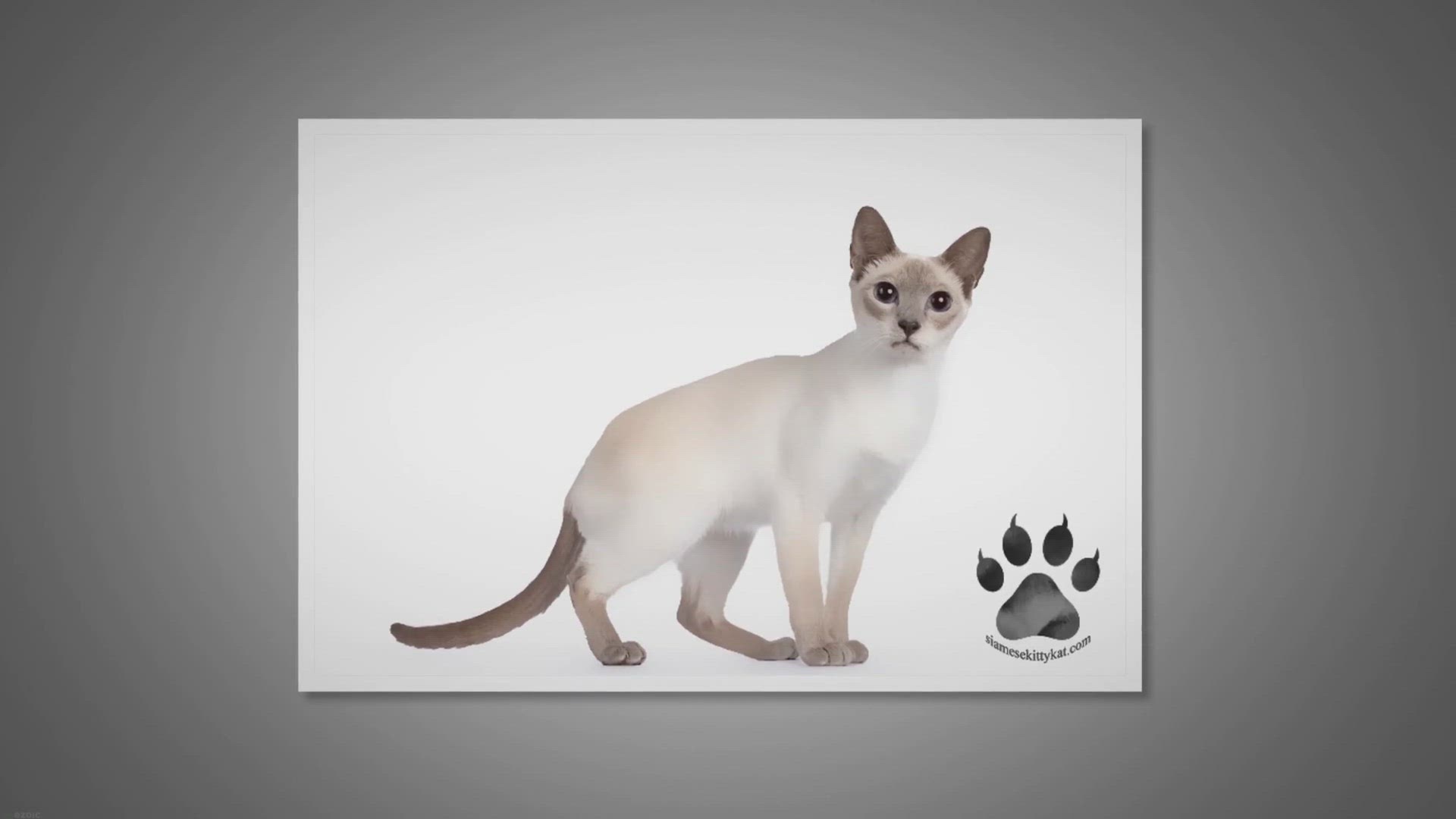
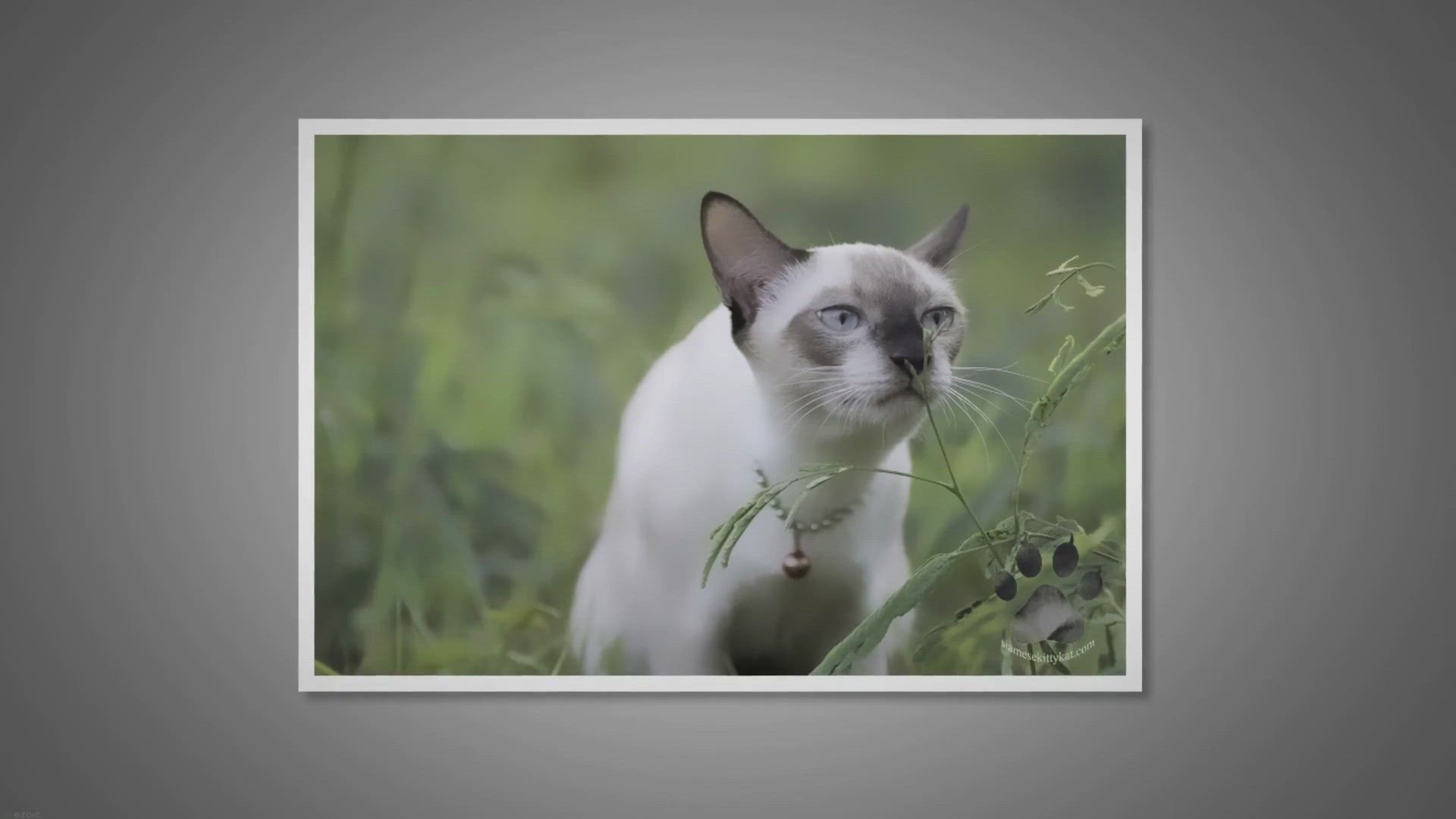
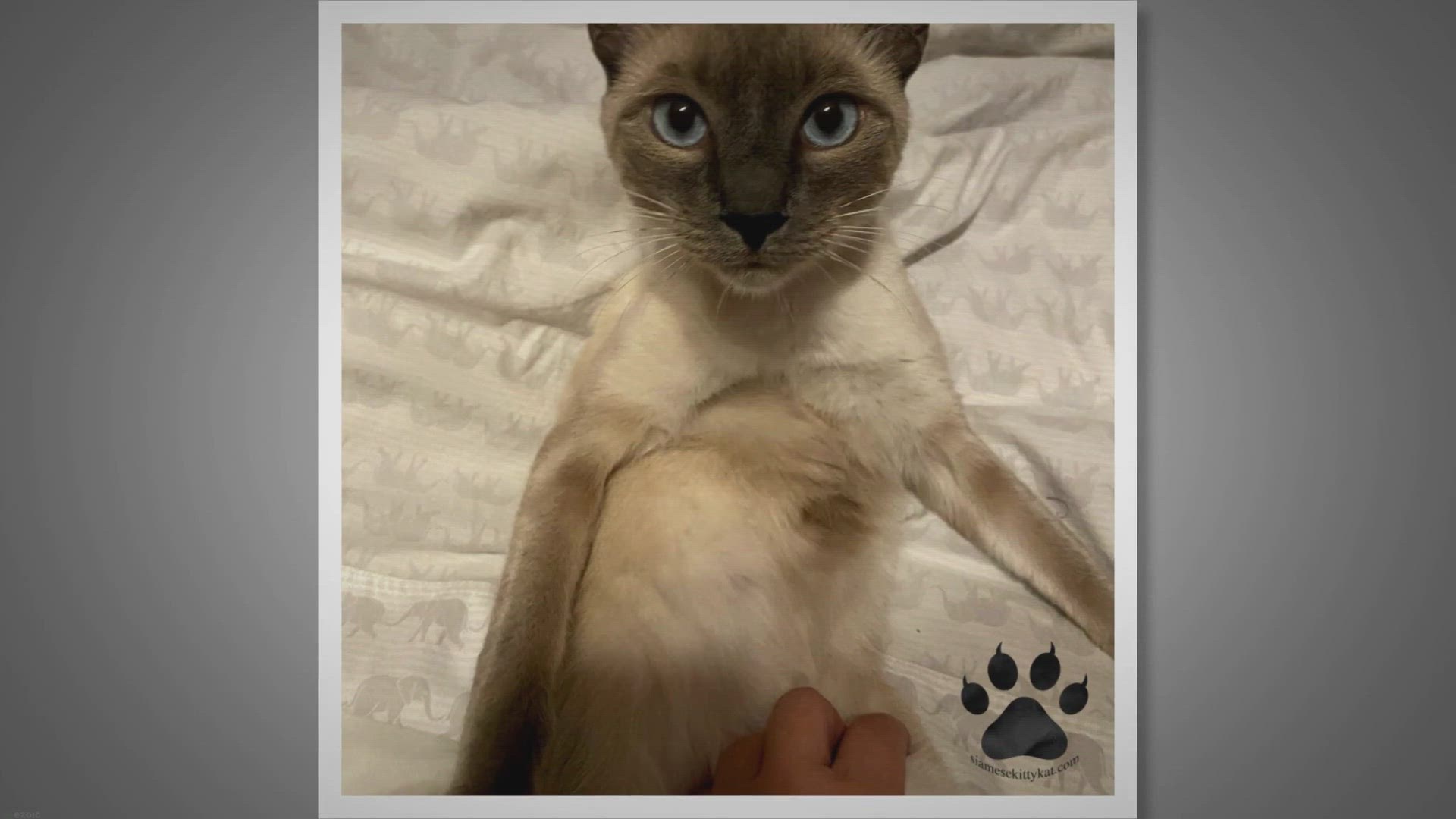
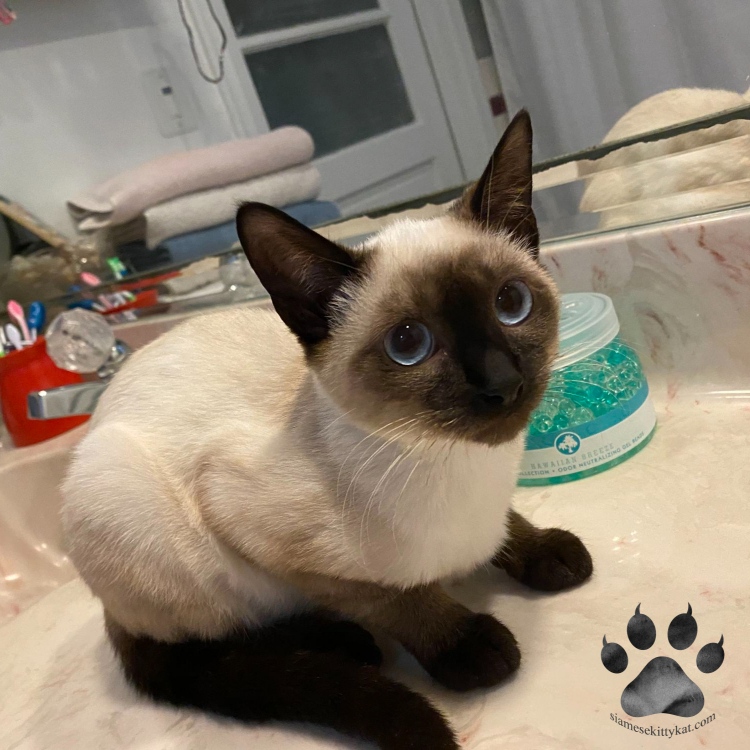
 Affiliate Link Notice
Affiliate Link Notice